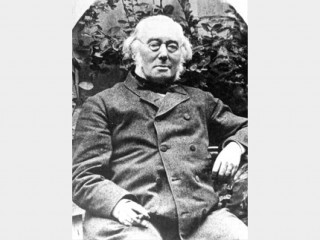
Albrecht Ritschl biography
Date of birth : 1822-03-25
Date of death : 1889-03-20
Birthplace : Berlin, Germany
Nationality : German
Category : Famous Figures
Last modified : 2010-11-15
Credited as : Theologian, Justification and Reconciliation,
The German theologian Albrecht Benjamin Ritschl was an influential interpreter of the New Testament whose views were, for a time, an effective counterweight to the dominant romantic tendency of 19th-century German theology.
Albrecht Ritschl was born in Berlin on March 25, 1822, the son of a bishop and superintendent of the Evangelical Church in Pomerania. He studied philosophy and theology at Tubingen and other universities. His teaching career began at Bonn, where he was first lecturer (1846) and then professor (1852) of New Testament studies and patristics. In 1864 he accepted a call to Gottingen, where he remained as professor of theology until his death.
Early in his career, under the influence of Ferdinand Christian Baur, Ritschl subscribed to the speculative interpretation of the early Church introduced by G. W. F. Hegel and F. D. E. Schleiermacher. But he soon abandoned this in favor of an approach based solely on historical and theological interpretation of Scripture: no important Christian truth depends on metaphysical argument. At the same time, Ritschl firmly rejected all experiential approaches to religious truth as sheer sentimentalism: not what happens now in the subjective consciousness of the believer but what happened in history—this alone can be the starting point of theology. Ritschl therefore opposed all forms of mysticism, and in particular the Pietist movement, as being decadent relapses into pre-Reformation forms of piety.
Ritschl's historical work established, against the Baur interpretation, the important point that no sharp division exists between the account of St. Paul and the accounts of the other apostles. The tendency of Ritschl's constructive views, in spite of this emphasis on a historical basis, was toward regarding religion as a support, or a guarantee, for man's moral aspiration. Borrowing heavily from Immanuel Kant's moral philosophy, Ritschl asserts that "in every religion what is sought … is a solution of the contradiction in which man finds himself as both a part of nature and a spiritual personality claiming to dominate nature."
This theme is argued forcefully in Ritschl's major work, Justification and Reconciliation (3 vols., 1870-1874). The effect of faith is to free us from guilt consciousness, to restore harmony between God and man, and to reinforce man's spiritual dominion over nature. Critics like Sebastian Brunner and Karl Barth argue that this emphasis on inner-worldly moral ends does not sufficiently bring out the "vertical," or transcendent, dimension of faith. Ritschl died in Gottingen on March 20, 1889.
Biographical studies of Ritschl are all in German. Interesting appraisals of him in English are in Hugh Ross Mackintosh, Types of Modern Theology (1937), and Karl Barth, Protestant Thought: From Rousseau to Ritschl (1959). A contemporary essay that draws heavily on themes from Ritschl is Philip J. Hefner, Faith and the Vitalities of History (1966).
Ritschl in retrospect: history, community, and science, Minneapolis, Minn.: Fortress Press, 1995.
















